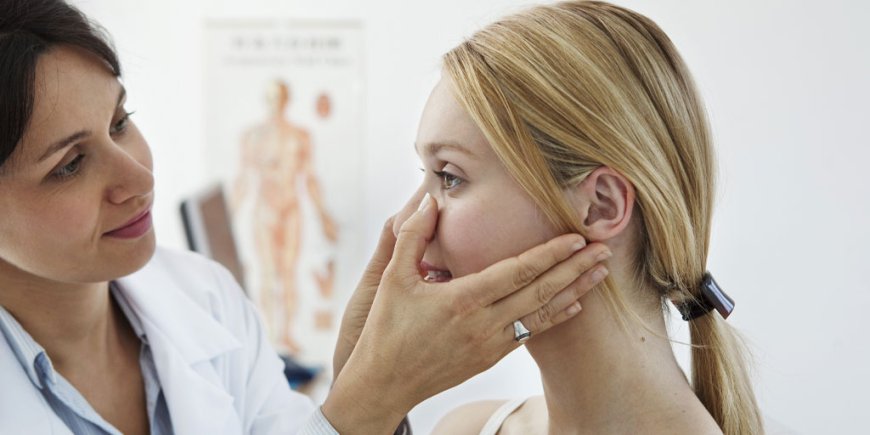What Are the Risks Associated with Rhinoplasty in Dubai?

Rhinoplasty, commonly referred to as a nose job, is a popular cosmetic procedure designed to enhance the appearance of the nose or improve its function. While rhinoplasty can offer significant aesthetic and functional benefits, like any surgical procedure, it carries inherent risks. If you're considering Rhinoplasty In Dubai, it’s essential to understand these risks to make an informed decision. Here’s an overview of the potential complications associated with rhinoplasty.
Common Risks of Rhinoplasty
1. Infection
Infection is a potential risk with any surgical procedure. Although rare, it can occur in the surgical site or within the nasal cavity.
- Symptoms of Infection: Look out for signs such as increased redness, swelling, pain, or discharge from the surgical site. If you experience a fever, it may indicate a systemic infection.
2. Bleeding
Excessive bleeding can occur during or after surgery. Some individuals may be more prone to bleeding due to certain medical conditions or medications.
- Management: Surgeons typically manage bleeding during surgery, but if post-operative bleeding occurs, it may require additional medical attention.
3. Scarring
Scarring is an inevitable part of the healing process, particularly with open rhinoplasty, where an incision is made across the columella (the tissue between the nostrils).
- Minimizing Scarring: Skilled surgeons take precautions to minimize scarring, but individual healing responses can vary. Over time, scars often fade but may still be visible.
4. Changes in Sensation
Temporary or permanent changes in the sensation of the nose and surrounding areas can occur. Some patients may experience numbness, tingling, or heightened sensitivity.
- Timeline for Recovery: Sensation typically returns to normal over time, but in some cases, changes may persist long-term.
Specific Risks Related to Rhinoplasty
1. Poor Aesthetic Results
One of the most common concerns is dissatisfaction with the final appearance of the nose. Results may not meet your expectations due to various factors, including individual anatomy, surgeon skill, and healing processes.
- Revisions: If the results are not satisfactory, a revision surgery may be necessary, which carries its own set of risks and complications.
2. Airway Complications
Rhinoplasty can sometimes lead to issues with nasal airflow, causing breathing difficulties. This is particularly relevant if the surgery involves the nasal passages or changes to the internal structures of the nose.
- Assessment: A thorough assessment of nasal airflow before surgery can help mitigate this risk, but complications may still occur.
3. Asymmetry
While surgeons aim for symmetry, there is a possibility that the nose may heal in an asymmetrical manner. Factors such as swelling and the natural healing process can influence the final shape.
- Post-Operative Monitoring: Your surgeon will monitor healing progress and discuss potential revisions if asymmetry is apparent.
Rare but Serious Risks
1. Anesthesia Risks
As with any surgical procedure requiring anesthesia, there are risks associated with both local and general anesthesia. These can include allergic reactions, respiratory issues, and complications related to pre-existing health conditions.
- Pre-Surgery Evaluation: Your anesthesiologist will conduct a thorough assessment to identify any risks related to anesthesia.
2. Nasal Obstruction
In some cases, structural changes made during rhinoplasty can lead to nasal obstruction, making it difficult to breathe through the nose.
- Prevention and Management: Surgeons can take steps to prevent this, but if it occurs, further evaluation and treatment may be necessary.
3. Psychological Impact
The psychological effects of undergoing cosmetic surgery should not be overlooked. Some individuals may experience anxiety, depression, or a phenomenon known as "body dysmorphic disorder" if they are dissatisfied with their appearance post-surgery.
- Counseling: Consider seeking psychological support or counseling before and after surgery to address any concerns about body image and expectations.
Conclusion
Rhinoplasty can be a transformative procedure that enhances your facial appearance and improves nasal function. However, it’s crucial to understand the potential risks involved. By discussing these risks with your surgeon during your consultation, you can better prepare yourself for the procedure and make an informed decision. In Dubai, where many skilled and experienced plastic surgeons practice, choosing a qualified and reputable surgeon is vital. Make sure to ask about their credentials, experience, and the techniques they use to minimize risks. Ultimately, thorough research and open communication with your healthcare provider will help you navigate the journey of rhinoplasty safely and successfully.
